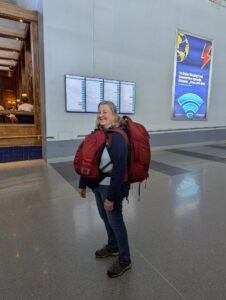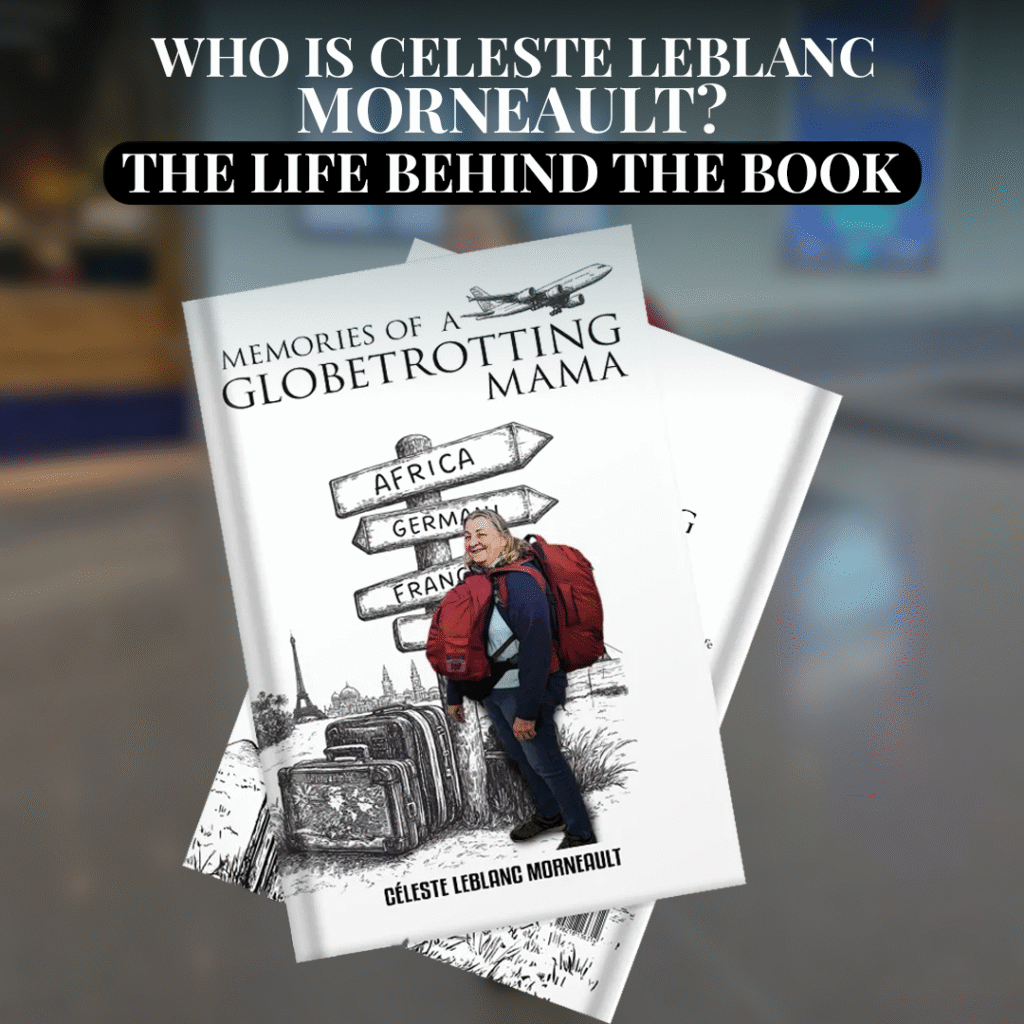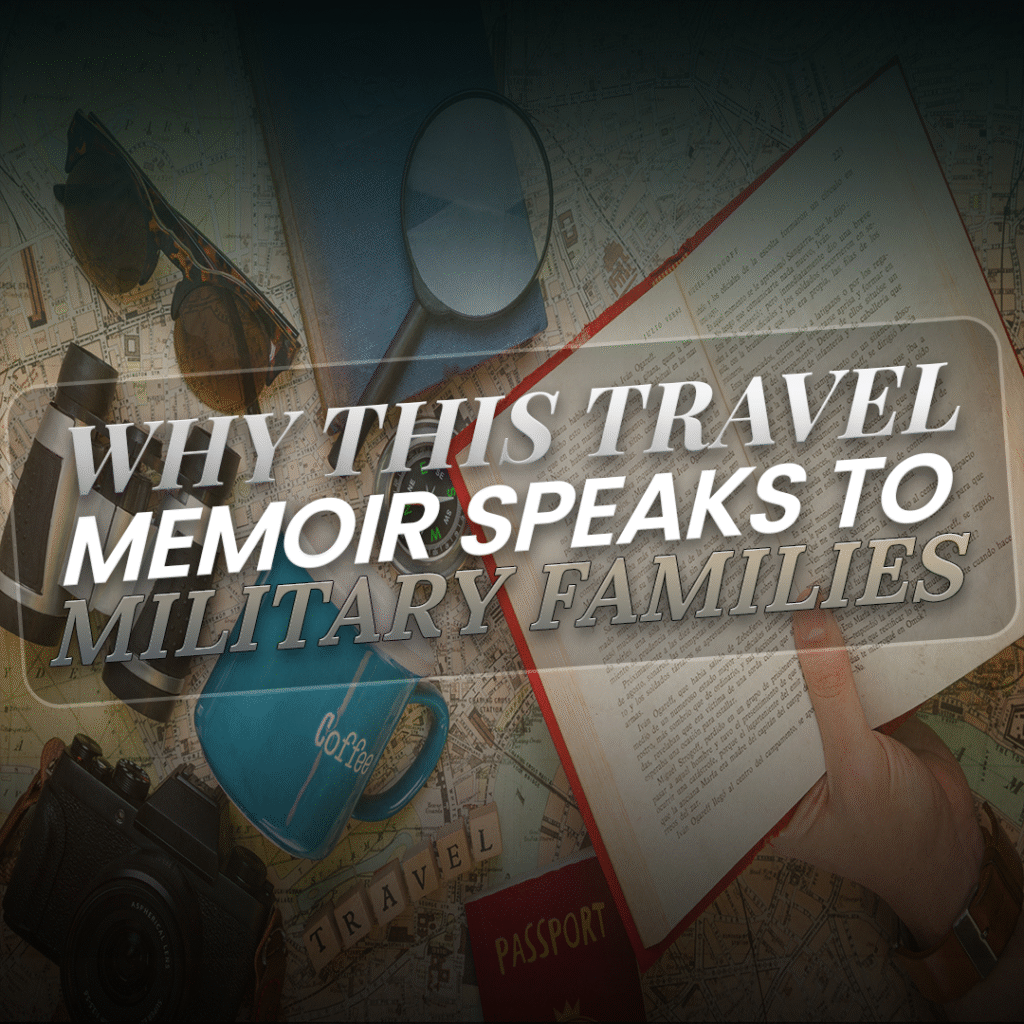Stories can feel like warm letters from a friend. When we read a travel memoir, we expect to see far‑off lands and bright images. But what makes one travel memoir stand out? And who will feel it most? In this blog, we look at the heart of a memoir that follows a woman’s life on the move. We explain why it fits the travel memoir mold and why military families and expats will feel right at home reading it.
What Makes It a Travel Memoir?
First, a travel memoir is not just a guidebook. It is a personal journey told in the first person. In this book, the author shares her life from childhood bases in Canada to posts in Europe and Asia. She writes about the smells of desert sand, the rush of a camel ride, and the creak of a wooden school floor. Each memory is tied to a place and a time. This blend of travel detail and personal thought is a core trait of a travel memoir.
Second, the book moves in a clear timeline. You start in a small Quebec hospital room, then follow the author as she becomes a military spouse, as she raises children, and as she faces a public scandal. The chapters mark stages in her life. Each stage takes you to a new land or a new challenge. That strict order helps readers feel the flow of time and travel.
Third, the tone is reflective and honest. The author does not hide her fears or losses. She writes about her father’s nightmares and the strain of media attention on her family. We see her laughter in the face of a stinky camel, and we feel her tears over a torn passport or a broken heart. That blend of joy and pain is a sign of a memoir that uses travel as its backdrop.
Why Military Families & Expats Connect Deeply
Now let’s ask: who will read this and nod in recognition? The answer is the many people who know what it is to pack up again and again, to learn new rules and new words. Military families and global expats move on orders. They leave their homes behind and build new ones in far places. They, like the author, have had to find routines in places with power cuts, odd foods, and broken toilets.
Frequent Moves and Fresh Starts
Military families know the pain of leaving a friend in one town and finding a new school in the next. The author writes about being 12, moving to a new house, and joining a private school an hour away. She felt the awkwardness of fitting in. That is a pulse many military kids know. They have backpacks of memories and a knack for first‑day nerves.
Cultural Challenges and Small Victories
Expats learn to laugh off lost words in a new tongue and to smile at strange customs. We read about the author’s first view of a bidet in Germany, and then her first taste of spicy chips in Jakarta. We see how she carried tissue paper in her bag on desert roads. These small but vivid details echo the expat life of learning to adapt and to find tiny wins in weird new worlds.
Finding Home in People, Not Places
“Home” can be a person more than a room. The author found strength in her mother’s calm or her husband’s steady presence. She found joy in shared meals at a base hall and in the laughter of her children on sandy beaches. Military and expat readers know that home is the circle of people who wait for you, no matter where you land next.
Humor as an Anchor
Humor binds these stories. The author jokes about camel farts in the desert. She laughs at her own fear when a lion cub nibbles her shoe. That sense of humor in hardship brings relief.
Military families often lean on jokes in tough times, whether they face a storm at sea or a long training drill. A shared laugh can keep spirits high when weeks of orders or weeks of rain cloud the mood.
Lessons and Shared Strength
A good travel memoir offers more than a trip report. It opens a window on real life. It says: “I have felt fear and loss, but I also found joy in small things.” It shows how to bend with change and still stand tall. It offers three key lessons:
- Embrace Uncertainty. The author survived broken power lines and visa mix‑ups. She shows that we can learn from surprises.
- Build Your Roots in People. Wherever you go, you can plant your heart with friends and family.
- Use Humor to Heal. Laughing at absurd moments can lift heavy days.
These lessons speak most clearly to the community that lives between borders. To the service families who have learned that the posting season always comes sooner than you think. To the expats who wake at dawn in a strange city and wonder what day it is. To the parents who teach their children to run at a new playground and hold them tight at night.
Join the Journey
If you have ever packed a box of memories in your car or stepped onto a plane, not sure where you will sleep that night, this memoir is for you. It shows you how one woman faced the unknown and found reasons to smile and to hope. It will make you laugh at the absurdities of life on the move. It will remind you that home can be a story you carry in your heart.
So open the pages and meet the woman who rode camels, navigated embassy dinners, and learned that the strongest roots grow where people gather. You might see yourself in every adventure and every challenge, and feel a little less alone on your own next move.




